Espresso - First Steps
Black Friday 2021 I impulse bought an on-sale espresso machine, despite warnings not to. Since then I've dumped way too much time into this for it be defensible as anything other than a "technical hobby" - way too niche gadgets, lots of science, and a bit of craftsmanship.
I was hooked.
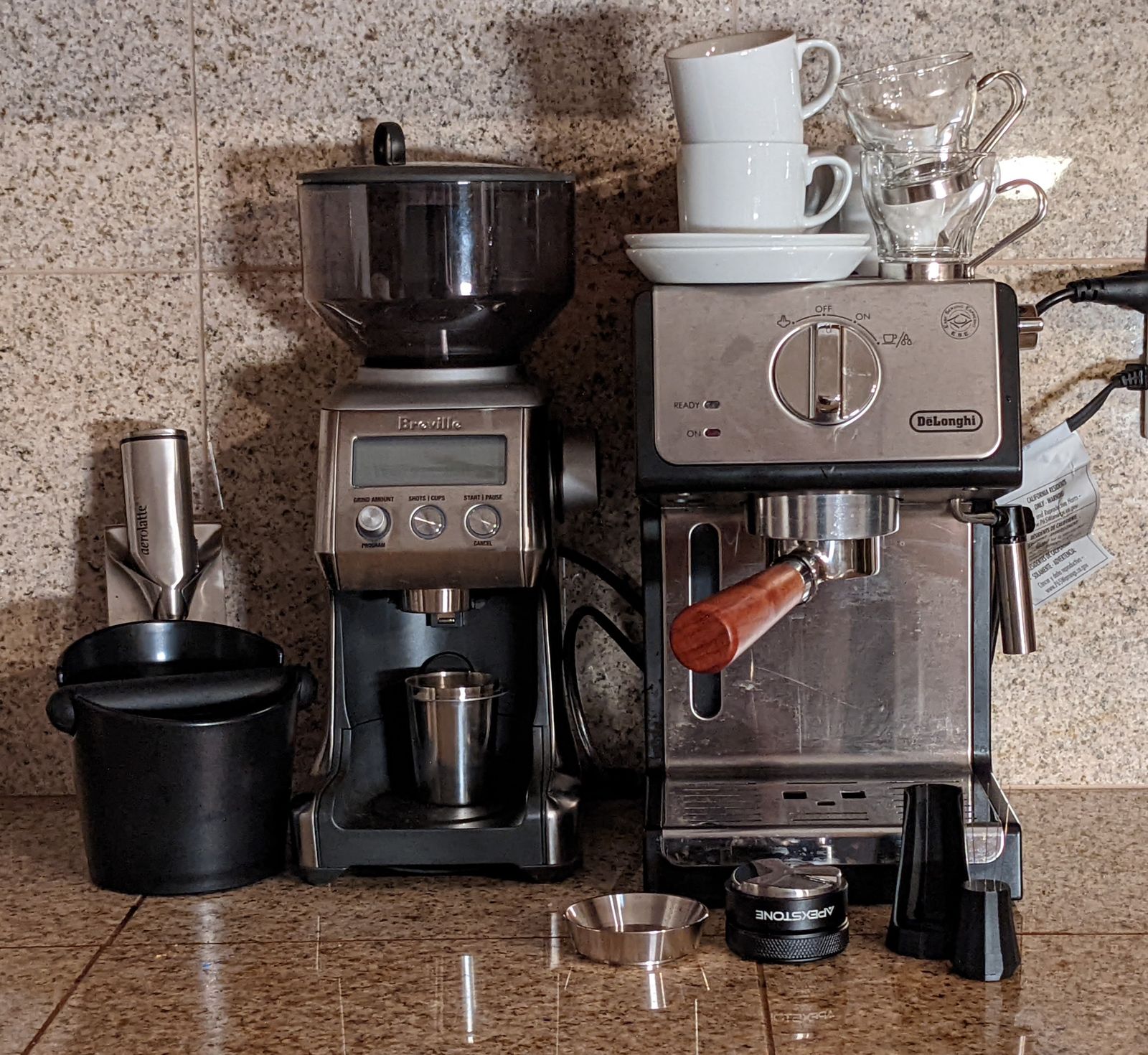
My goal was to pull decent shots on as cheap equipment as I could get away. In this post I'll share some key things I've learned, and my current technique!
I wouldn't have gotten far without the stellar work of James Hoffmann.
How is espresso different from other coffee?
Grind size.
Operating at high pressures (~9bar typically) allows you to grind your coffee much finer than basically any other brewing method. A finer grind both allows you to extract more flavor from the coffee, but also a different set of flavors. This is why an Americano (espresso diluted with water) will taste different than a regular drip coffee, even if they're the same strength and from the same bean.
There is no "espresso" and "regular" coffee beans. There is no "espresso roast" (you can use any roast level). Espresso is a preparation method, to be used with any type of coffee.
It's important to emphasize that espresso is not the best or pinnacle method of brewing. Just another (overly complicated) method.
"American" vs "Italian" shots
A "shot" of espresso in most of America is considered a double shot by traditional Italian standards (where espresso originates). To disambiguate, we'll measure the actual amount of coffee used.
Single shot: 7-9 grams Double shot: 16-20 grams
I've been to a coffee shop where I asked for an extra shot of espresso, and they poured out half of what they made (because they pulled a double shot).
Purchasing priorities
Beans over Grinder over Espresso Machine.
Nothing will make as big a difference to the quality of your espresso as buying fresh beans, then grinding them to the appropriate size right before brewing.
Why buy a nice grinder?
- You'll have more granularity available in the fineness range for espresso
- You'll have a more consistent grind
Smaller coffee particles will over-extract, producing bitterness - larger ones will under-extract, producing blandness.
What about pre-ground coffee?
When you grind coffee, you dramatically increase the surface area. This allows the volatile chemicals (flavor) to evaporate and oxidize substantially faster than they would in the whole bean.
This is true for any coffee preparation method, not just espresso.
Decaf
All this effort, and I'm not even getting caffeine out of it.
Usually decaf is a secondary thoughts for roasters, who seem to have it for "inclusion" purposes rather than an actual attempt at good coffee. Thankfully there are a range of micro-roasteries who specialize in decaf coffee. I've gone with Talking Crow, who are based out of Washington!
If you want decaf beans, I recommend finding beans that are decaffeinated through the Swiss Water Process. The process by which your beans are decaffeinated will have a huge impact on them!
Technique
No more background. Let's brew!
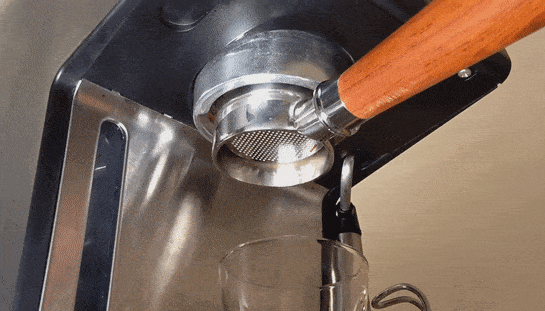
You don't need a "naked" portafilter, but it will help you diagnose problems with your shot easier. Ideally you want a single solid, consistent stream from roughly the center of your basket with no little jets of water shooting off.
For all of the subjectivity of flavor, we actually can set some pretty specific parameters for brewing. Our goal is:
- 16-19g of coffee,
- brewed to 32-36g of final weight,
- in 25-32 seconds,
This is "2-to-1" shot (output to coffee). We'll achieve this by adjusting:
- The grind size
- The amount of coffee
Overview
In order, you'll want to
- Grind ~18g of coffee, put that in your portafilter
- Distribute and tamp the coffee
- Tare your scale with your espresso cup, and get a timer ready
- Pull your espresso shot for 25-28 seconds
- Measure the output volume, change grind setting, and repeat back at 1.
We'll go over each step in detail.
Grind
Two pieces of niche equipment will help you here. A tiny dosing cup and a precision scale. The dosing cup should be diameter-matched to your portafilter.
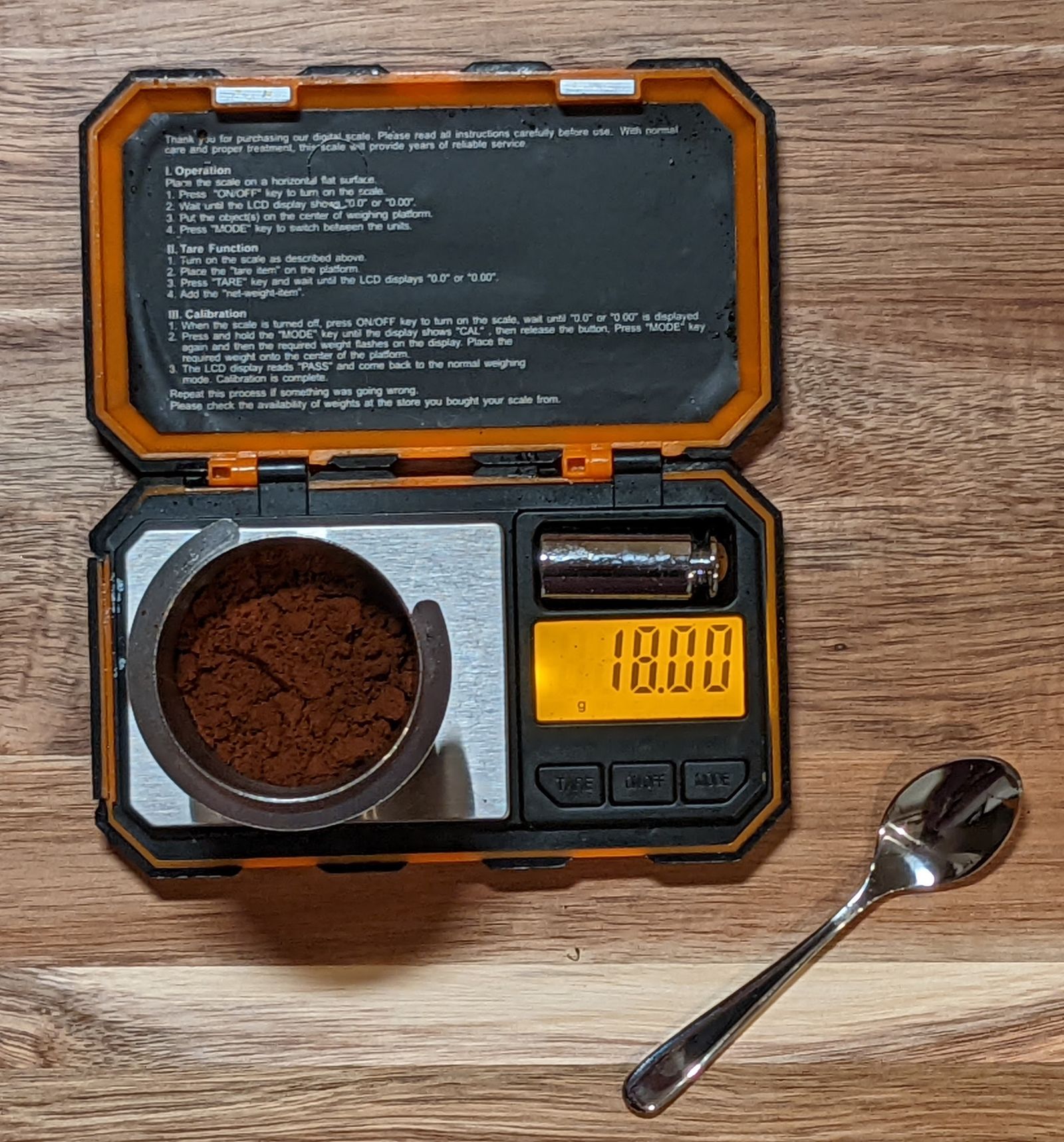
How much coffee do you use? Well, no more than fits in your portafilter. High end baskets actually are rated for a particular gram amount. But this is a maximum, you can put less in - you'll just have a messy liquidy top (which is fine).
Make sure you leave some room at the top for your group head.
Distribute
Water will find the easiest path through the coffee, so we want to make it's life difficult by making all paths even. Unless you have a very nice coffee grinder, you will have lumps in your grind. We break them up using a WDT tool (Weiss Distribution Technique).
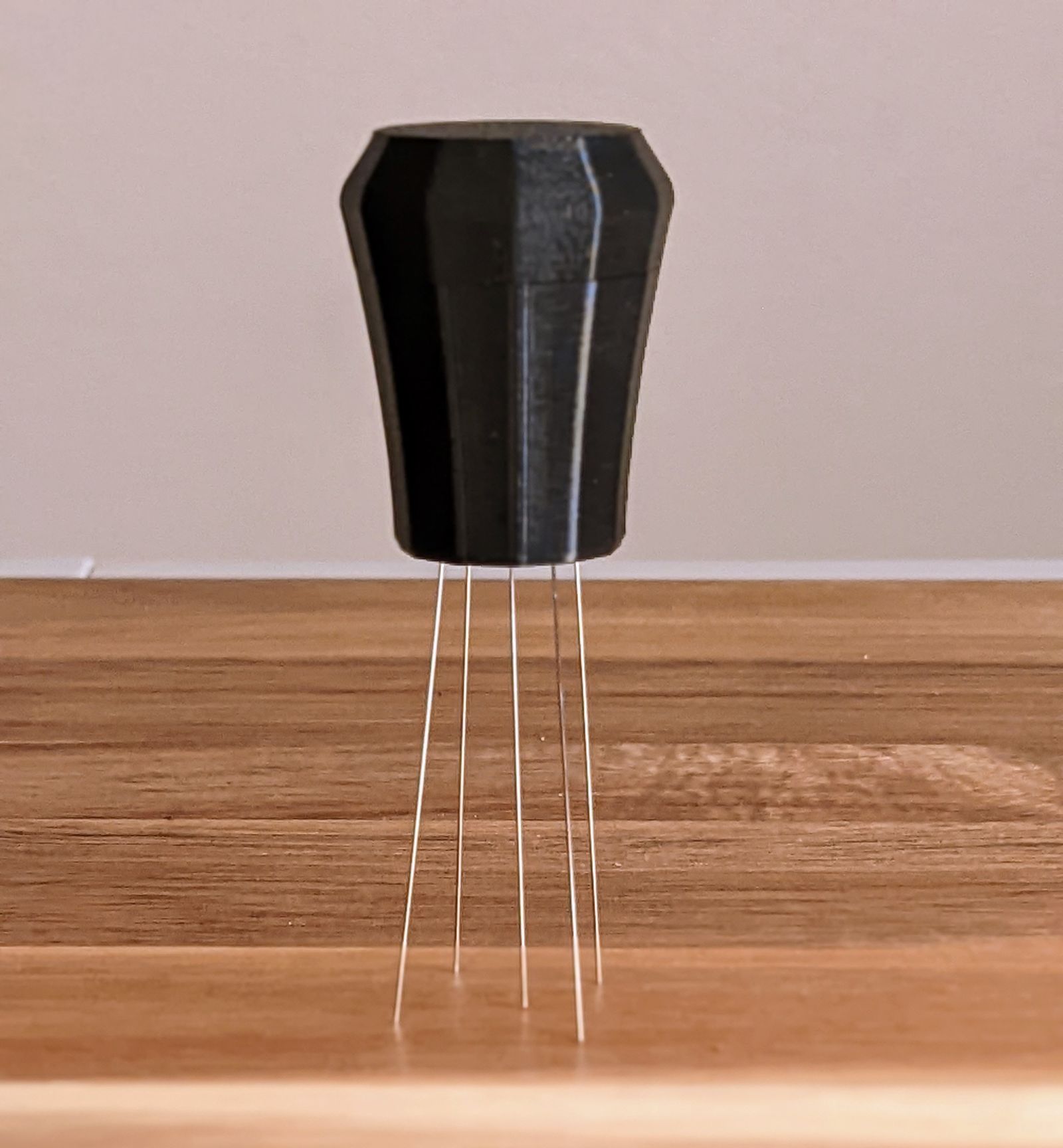
The important bits are that your needles are very small. Two commonly used solutions are acupuncture needles or 3D printer nozzle cleaning needles. I'm using the latter.
Then, you'll want to swirl in small circles the needles through the coffee. As you do this, you'll fluff up the coffee. Another niche equipment, a dosing funnel, will solve a practical problem: keeping the coffee in the portafilter!
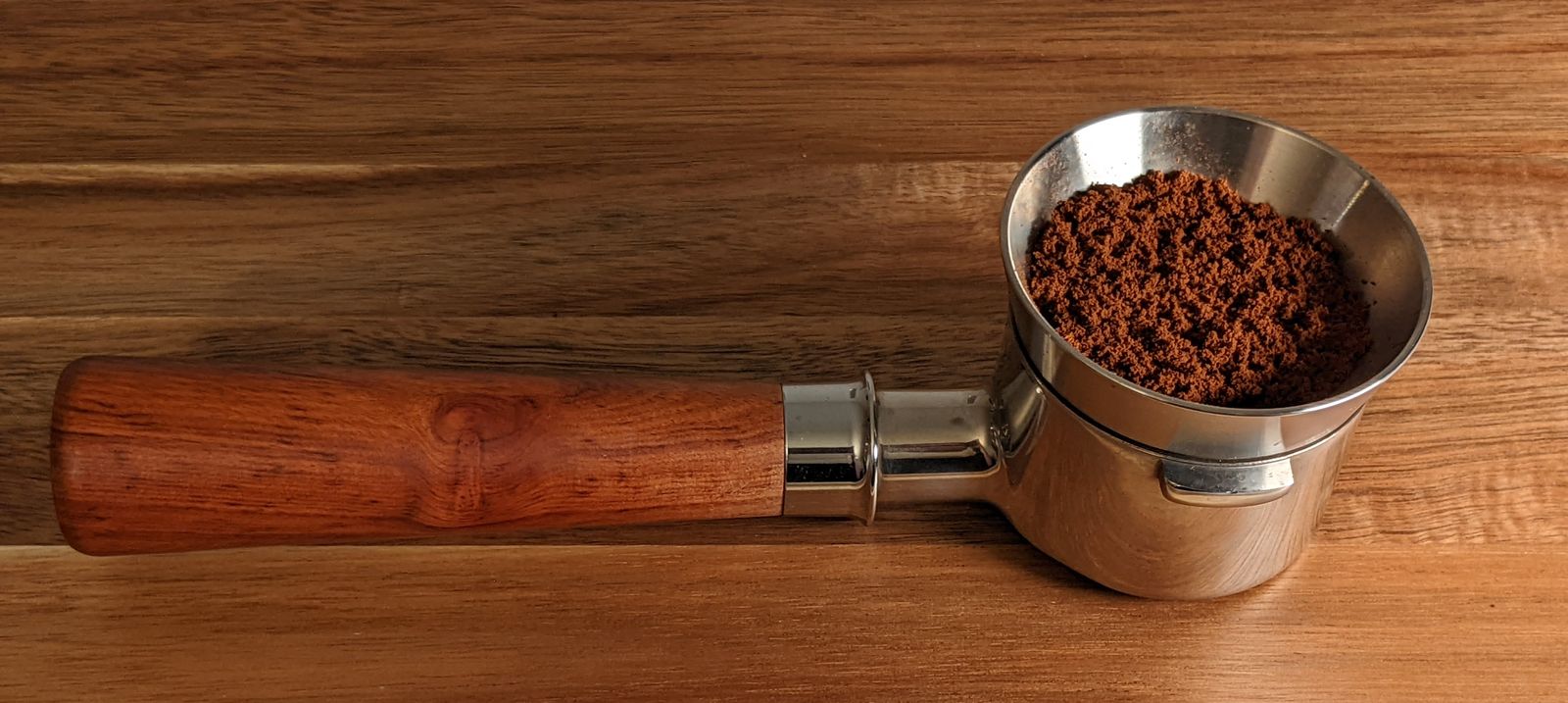
Tamping
You'll want to provide some level of tamping to your coffee, but not too much. Really just enought to compress it so that it's not loose. I use an unnecessary-but-very-nice Coffee Distributer, which both tamps and levels the coffee bed.
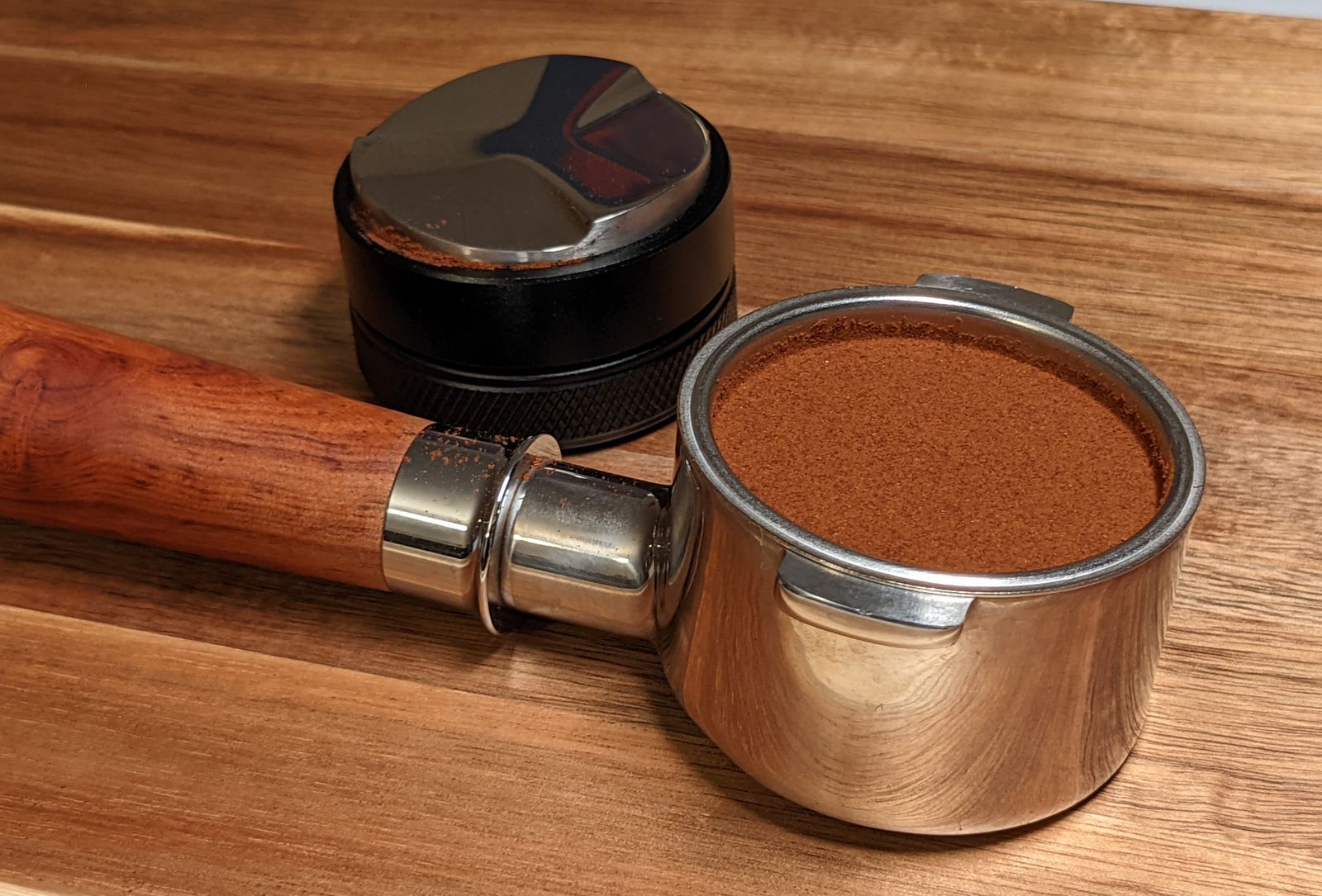
Adjusting the shot
By now your portafilter is prepped and ready to go. You'll want to tare your scale against your espresso cup, and get a timer handy. This is when we figure out whether we chose the right grind size, and will make the most substantial adjustments and improvements to our pulls.
Our target is to pull 2x the weight of coffee in 25-28 seconds.
Start your timer when you start your machine (not when liquid starts coming out). Now you get to measure your results!
- If too much liquid was pulled, your grind was too course. Adjust to a finer grind.
- If too little liquid was pulled, your grind was too fine. Adjust to a coarser grind.
Repeat your process until you hit the target zone! Congrats, you'll likely have a reasonable shot of espresso :)
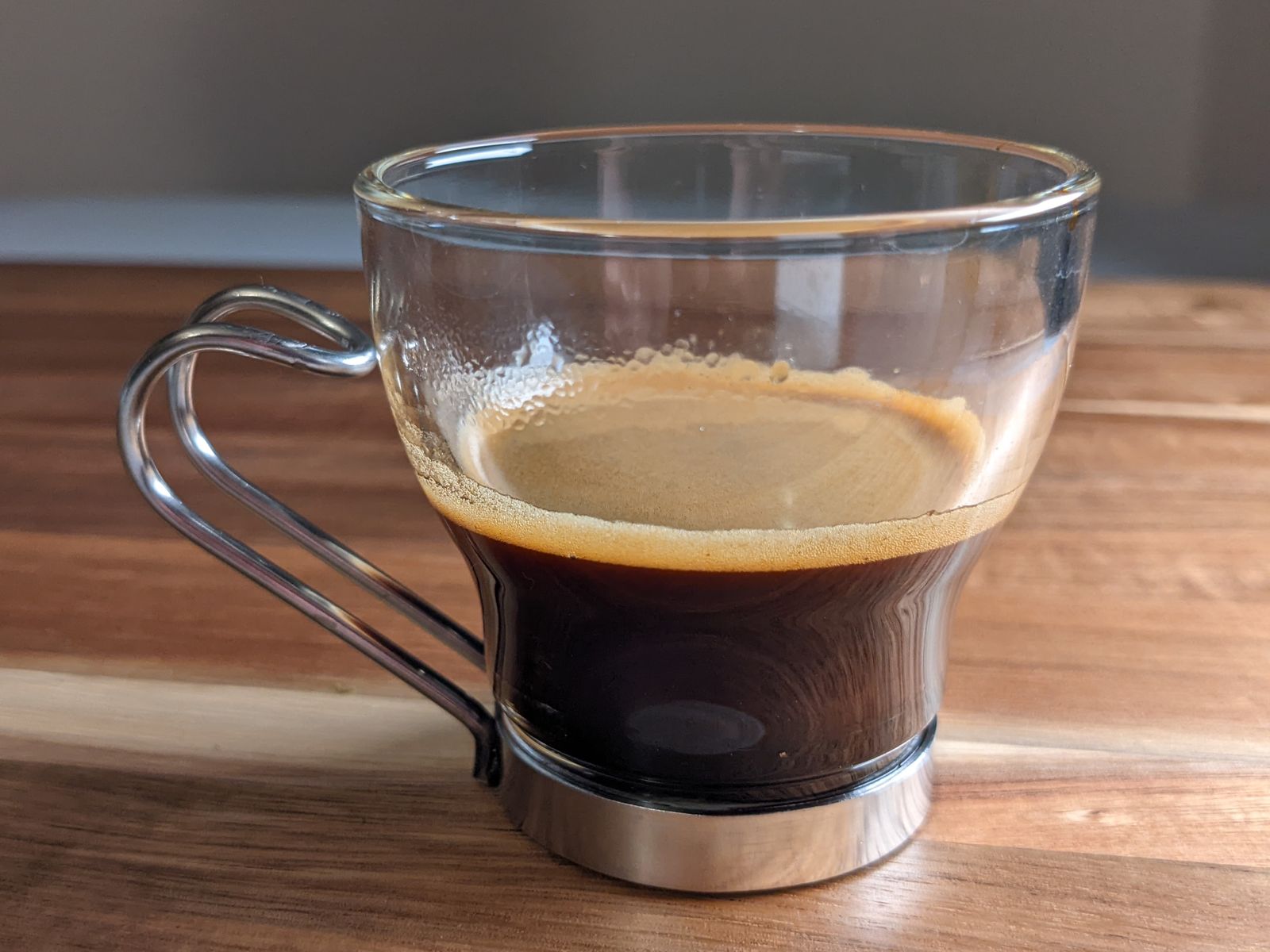
Now adjust to your personal preferences
2:1 ratio over a 25-28s pull time are guidelines for what will hit a generally good shot, but you very well might like something different. This is the fun part!
Maybe you really like shots pulled at a 2.5:1 ratio over 22s. Maybe it's 1.6:1 over 32s.
Every bean is different.
This is another fun part! Every time you try a new coffee, you'll have to figure out how to get a good pull from your setup. Your particular grinder, machine, and prep combo will pull uniquely, and so you'll need to experiment!
Future things to play with
Other variables that can affect your pull:
- Water temperature
- Water pressure
- Pressure Profile. (very high end machines let you change the water pressure over time during the shot 🤯)
- High end baskets
But those are functions of fancier machines than I have.